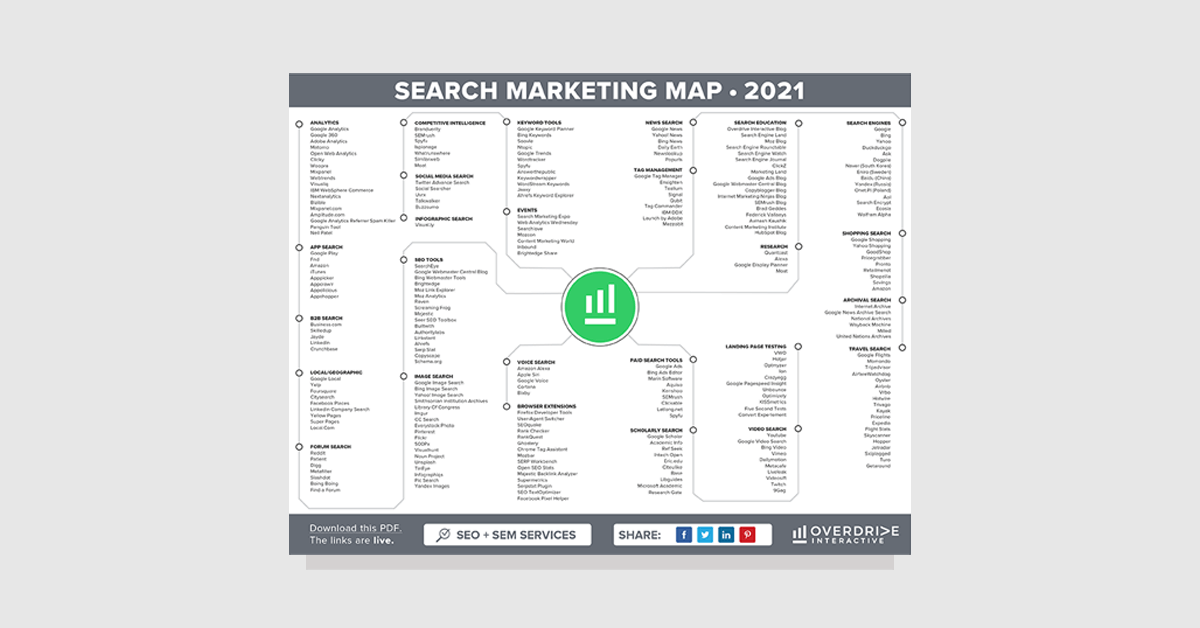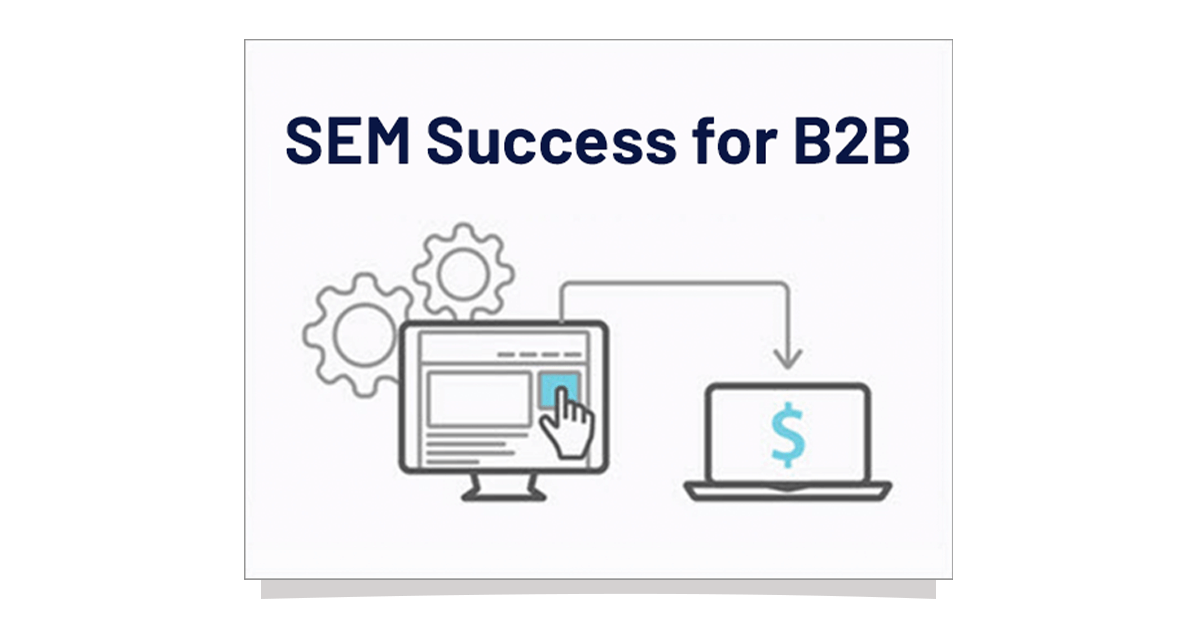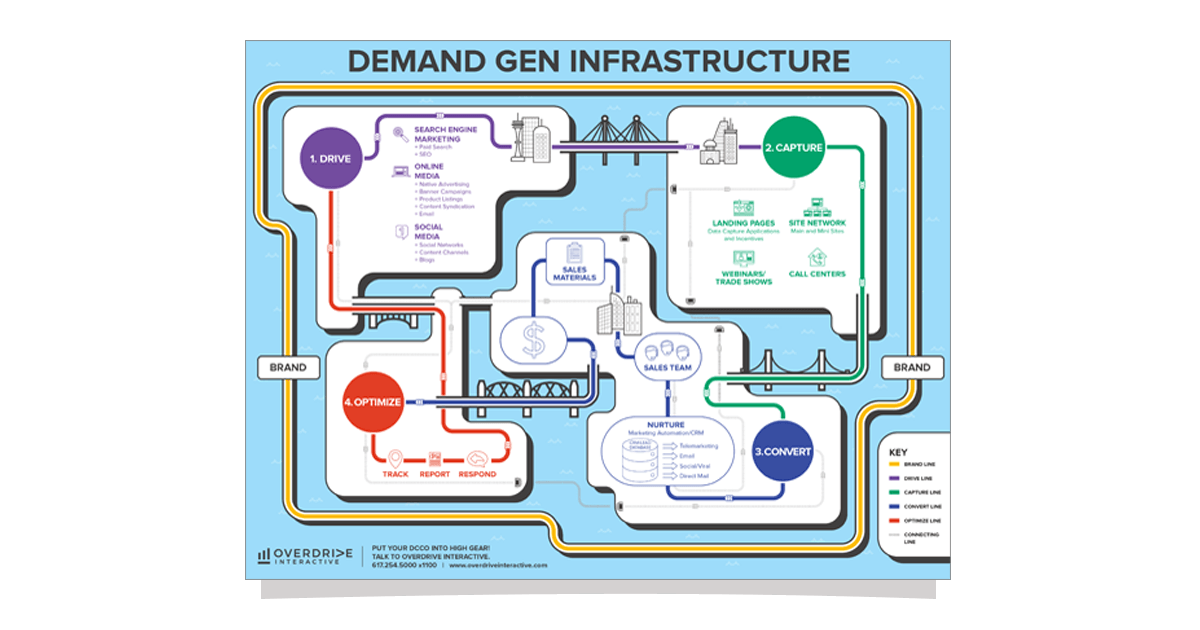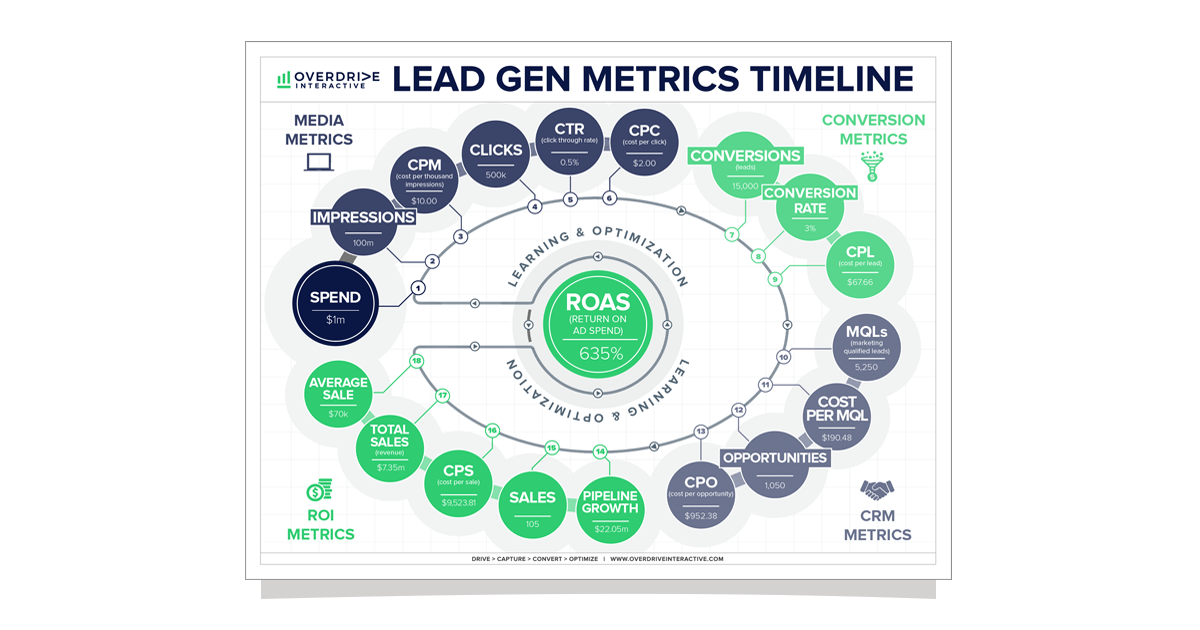Integrated Digital Demand Generation
Search Marketing
Improve Your Search Marketing Performance with Overdrive
Search marketing is the backbone of most digital marketing campaigns. Also known as pay-per-click (PPC) and search engine marketing (SEM), search marketing connects advertisers with potential buyers through ads that appear on a search engine results page (SERP) when a user searches on a particular keyword or phrase. Because it lets you reach buyers in the very instant they’re searching for the things you offer, search marketing can be incredibly effective at generating leads and securing conversions. And because you pay only when a user clicks on your ad – you pay nothing for impressions – search marketing is also amazingly cost-efficient.
While the premise and the basic components of paid search marketing are easy to grasp, managing campaigns for maximum effectiveness and competitiveness can be quite difficult. That’s why so many companies turn to Overdrive for paid search management services to augment resident capabilities and take advantage of the extraordinary expertise of our search marketing specialists.
Search Marketing Map
Wrap your head around Search Marketing with the latest Search Marketing Map. Updated with 26 categories that account for 281 of the best sites, tools and resources of today. The Search Marketing Map helps marketers quickly become better marketers.
Access Now
The Benefits of Search Marketing
Whether you’re unsure that search should be a central part of your marketing mix or you need to justify your budget to your CMO, here’s a short list of the advantages that search marketing offers.
- It’s full funnel. While many think of it as a late-funnel tactic for closing sales, search marketing is equally effective with top- and mid-funnel prospects. Paid search engine marketing can be highly effective at building awareness among top-funnel prospects as they make their first forays into your market, and it can nurture middle-funnel prospects with offers for content downloads, newsletter sign-ups, and other thought leadership pieces. Ads should focus on the benefits for the customer, rather than the amazing features of your product or service. Customers don’t want to buy features – they want to solve problems. By focusing on how your offer makes their life better, you can appeal to their emotions and help to meet their needs.
- It’s measurable and trackable. There is nothing mysterious about search marketing – you’ll get a clear picture and count of every impression, click, and conversion, arming you with a wealth of data you can used to optimize campaigns and increase results.
- It’s a fast start. While other marketing channels may take weeks or months to ramp up, you can start a paid search marketing campaign in minutes or hours. Building a complete and cohesive campaign will take much longer, but pay-per-click lets you establish an initial presence quickly and easily..
- It offers remarkable control. From choice of keywords to budgets and bids, you have complete control over your campaign and can pause or stop any element at any time.
- It supports other channels. Paid search marketing works well with and amplifies the efforts of SEO (organic search campaigns) and social media marketing, as well as traditional direct marketing activities.
- It’s targeted. Search marketing lets you narrowly target users based on past behavior, audience demographics, geography, day/time, and the device that buyers are using to search.
SEM Success for B2B Webinar – Video & Slides
Learn how you can afford to dominate the search engine results for all your keyword terms and maximize conversions while maintaining quality.
Access Now
Strategies for Greater Search Marketing Success
When you work with Overdrive to build a search marketing campaign, you’ll benefit from our vast experience in search management and paid search optimization for hundreds of clients.
Some of our most effective strategies include:
- Mapping search marketing tactics to every stage of the buying journey. As customers move through your sales funnel – from initial contact to researching and comparing options to making a purchase and seeking follow-up service – their needs and questions will change with each stage, and their searches will inevitably change as well. By tailoring keywords, messaging, offers, and copy in ads and landing pages to the specific mindset of the customer at each stage, we build search marketing campaigns that help to successfully meet buyers’ needs and enable them to take the next step in their customer journey.
- Targeting audiences through rich buyer personas. After developing detailed personas for a wide range of buyers, we use predictive analytics and the built-in filters and tools in search platforms to target buyers based on past behaviors, demographics, and the immediate context of each user’s search. We tailor ads and offers to every persona at each stage of the journey, using information about FAQs and Benefits with early-stage buyers, content such as Reviews and Guides with mid-funnel prospects, and Free Trials and Demos for late-stage buyers.
- Integrating search with other campaigns. As a full-service digital marketing agency (and not just a PPC agency), we integrate search marketing with social, broadcast, display, and other media to improve the effectiveness of every channel. TV ads spike search volumes, display ads increase search conversions, and social media content shows up on search results pages to improve the effectiveness of SEM and SEO.
Demand Gen Infrastructure
Discover DCCO: Drive. Capture. Convert. Optimize – Overdrive’s four-step approach to demand generation. This four-part infographic will help you to visualize the tactics and technologies you need to drive traffic, capture leads, nurture prospects, and optimize for ever-increasing ROI.
Access Now
What to Track and Measure in Search Marketing Campaigns
One of the most powerful aspects of search marketing is the ability to measure and optimize each aspect to improve results. The most important metrics to monitor include:
- Clicks – the total number of people who click on an ad.
- Click-through rate (CTR) – the percentage of clicks out of total impressions.
- Quality Score – a metric that indicates how relevant an ad is to a user’s search; it plays a big role in determining which ads appear on search pages.
- Cost per click (CPC) – the average cost of a user’s click on an ad
- Cost per conversion – the average cost of getting a user to convert by taking the next step in the buying journey.
- Conversion rate – the percentage of conversions out of total number of clicks.
- Impression share – the percentage of impressions your ads garnered out of total impressions for a keyword term.
Lead Gen Metrics Timeline
Get Overdrive’s new Lead Gen Metrics Timeline and understand which metrics really matter for lead generation programs. The timeline provides the important metrics needed to truly “close the loop,” marking the journey from spend to ROAS (return on ad spend).
Access Now
Overdrive Services for Search Marketing Campaigns
The complexity of search marketing creates real challenges for marketing teams that are also managing campaigns in a variety of other channels. That’s why Overdrive provides a team of search marketing specialists who can easily fill the gaps in your internal capabilities with hands-on strategy, planning, execution, reporting, and optimization. Our services include:
- Strategy and planning
- Strategic search and media consulting and planning
- Keyword selection and grouping
- Offer and ad text development
- Search account configuration and campaign setup
- Execution and optimization
- Retargeting and display advertising
- Landing page development and testing
- Video and YouTube ad management
- Product Listing Ad (PLA) feed setup, management, and optimization
- AdWords and Google Analytics integration and management
- Google Tag Manager (GTM) implementation and management
- Click-to-call and pay-per-call advertising
- Media and SEO integrationt
- CRM Metrics
- MQL – the number of Marketing Qualified Leads generated
- Cost per MQL – the average cost of each MQL
- Opportunities – the number of qualified leads or sales opportunities created
- CPO – the average cost per opportunity
- SQL – the number of Sales Qualified Leads generated
- Tracking and reporting
- Tracking and reporting setup and configuration
- Retail and mobile tracking
- Attribution modeling and AdServer management (Dart)
FAQs
What is Search Marketing?
Search marketing is a method of advertising that uses paid ads on search engine results pages to connect advertisers with potential buyers who are searching on terms related to their products and services. For each search, a search engine platform holds an instant auction to determine which advertisers’ ads will appear on the results page; the ads with the highest bids and the most relevant content will appear first. Each ad includes a URL which, when clicked, takes the user to a landing page for more information. Advertisers are charged for each click rather than for each impression.
How do you measure search marketing?
Search engine platforms provide a wealth of data to measure the performance of search marketing campaigns. Campaigns are typically measured with metrics that include total number of impressions, clicks, and conversions, as well as efficiencies such as clicks per impression, cost per click, conversions per click and cost per conversion.
What are the different types of search marketing?
While search marketing typically refers to paid search, the field of search in digital marketing also refers to organic search, also known as search engine optimization (SEO). Organic search is designed to increase a web page’s position/rank on search engine results pages by optimizing copy on the page to include important keywords and phrases that improve the page’s perceived relevance and value.





